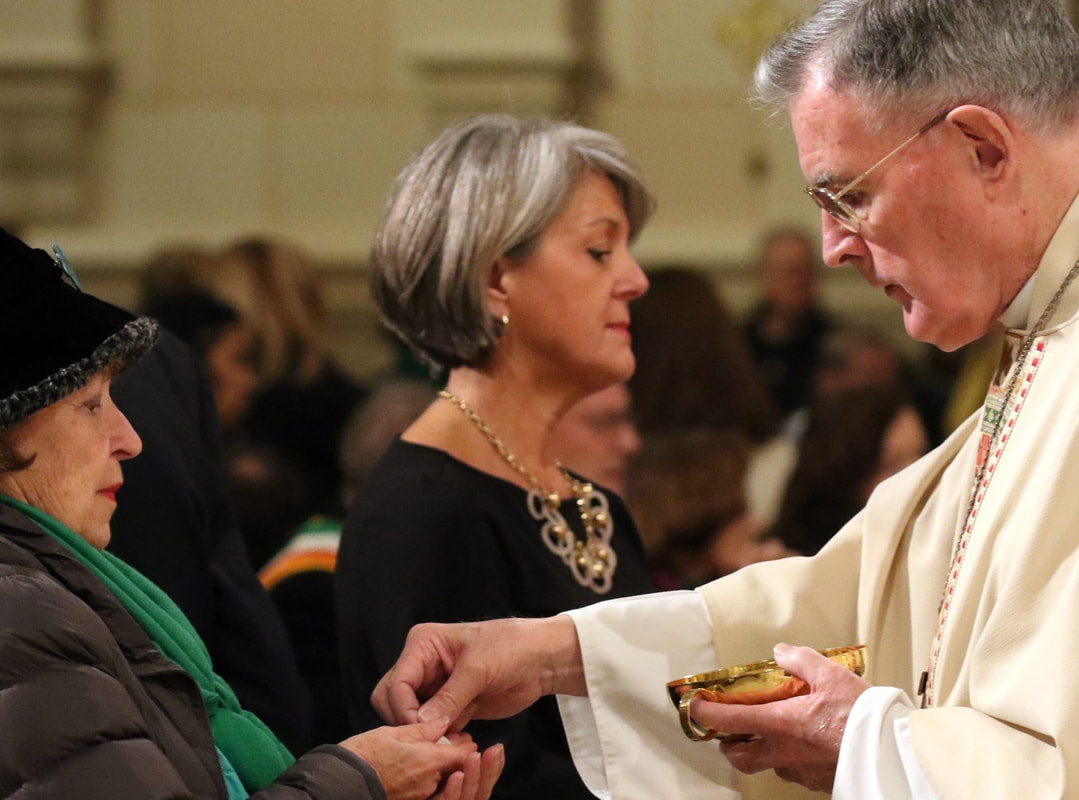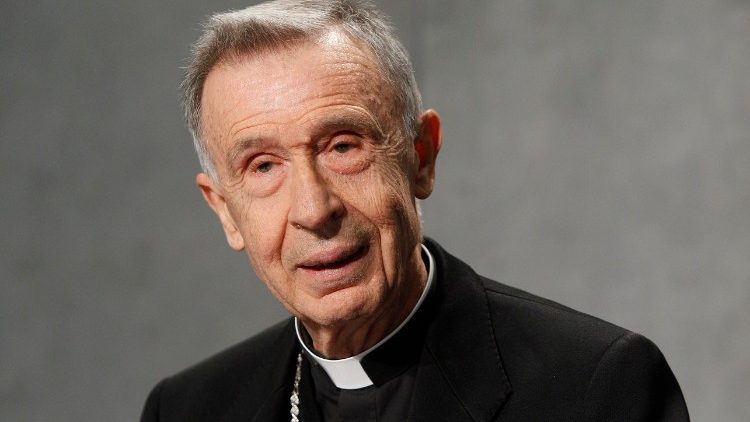THE EUCHARIST AND COMMUNION
A Right of Baptism or a Political Weapon
THE PROPOSED USCCB DOCUMENT ON CATHOLIC POLITICIANS AND THE
RECEPTION OF COMMUNION
by John R. Connolly
The document under consideration by the U.S. Bishops Conference (USCCB) Committee on Doctrine will not prohibit Joe Biden and Catholic politicians from receiving communion. The USCCB does not have the authority to make this decision. Pope Francis has given the authority to make decisions on the reception of communion to the individual diocesan bishops. So, as an alternative approach, the USCCB has decided to request that Joe Biden and Catholic politicians voluntarily refuse to present themselves for the reception of communion.
The foundation for the bishops’ teaching on abortion and their campaign to refuse communion to Joe Biden and Catholic politicians is rooted in their teaching on the “preeminent priority of abortion. However, the evidence suggests that the expression, “the preeminent priority of abortion” has not been an essential element of the Catholic Church’s traditional teaching on abortion. As such, the USCCB teaching on the “preeminent priority” of abortion is, at best, only one possible way to interpret the Catholic Church’s teaching on abortion.
In fact, Pope Francis does not accept the U.S. bishops teaching on the “preeminent priority” of abortion but teaches that the Catholic Church’s teaching on abortion includes and integrates all the respect for life teachings of the church. Pope Francis teaches that abortion and all the Catholic Church’s teachings on respect for life are “equally sacred." Even among the U.S. bishops there are questions about the adequacy of USCCB’s teaching on the “preeminent priority” of abortion. In their 2020 voting guide document the U.S. bishops present their own view on the “preeminent priority” of abortion as the normative Catholic view over Pope Francis’ view of “equally sacred.”
The validity of the U.S. bishops’ effort to deny communion to Joe Biden and Catholic politicians is totally dependent upon their teaching on the “preeminent priority” of abortion. It is their acceptance of this teaching that allows them to apply their exclusion of Catholic politicians from communion on the basis of the issue of abortion alone to the exclusion of the other teachings of the church on respect for life. Also, the teaching on the “preeminent priority” of abortion allows the bishops to identify the church’s teaching on abortion with their own public political agenda which has the ultimate objective of making the teachings of the church the laws of the United States government. It seems that “preeminent priority” is less a teaching on abortion and more a statement of a political strategy adopted by the U.S. bishops conference to accomplish their objective of overturning Roe v. Wade and making abortion illegal in the United States. Consequently, the USCCB has actually politicized the church’s teaching on abortion.
However, the limitations of this approach to the issue of abortion are evident. Catholics are bound in faith to accept the church’s teaching on abortion, but they are not bound in faith to accept or agree with the U.S. bishops’ political agenda or their public policy endorsements. Kansas City Archbishop Joseph Naumann’s claim that Joe Biden is teaching in the name of the church and confusing Catholics on the church’s teaching on abortion only has validity if you identify the church’s teaching on abortion with the U.S. bishops’ political agenda. When Catholic politicians advocate for the rights of the citizens of this country, even those rights of which the church does not approve, they are not teaching church doctrine or acting in the name of the church. Consequently, it cannot be claimed that a Catholic politician who does not follow the political policies advocated by the bishops on abortion, or other issues, is denying the Catholic Church’s teaching on abortion.
One solution for Catholic politicians on a personal level is that they can accept the Catholic Church’s teaching on abortion as presented by Pope Francis and dissent from the U.S. bishops’ teaching on the “preeminent priority” of abortion. They can, therefore, continue to receive communion even if the USCCB formally and publicly issues a document asking them not to present themselves for communion. However, it might help if the USCCB would take more responsibility for causing the divisions within the church in the United States on the issues of abortion and the reception of communion. Perhaps they need to discuss how they can reconcile their teaching on abortion with that of Pope Francis. (see full article).
VATICAN LETTER TO THE U.S. BISHOPS REGARDING THE USCCB'S PROPOSED DOCUMENT ON THE RECEPTION OF COMMUNION
Cardinal Lius F. Ladaria, S.J., the prefect of the Congregation for the Doctrine of the Faith, CDF, sent a letter dated May 7, 2021 to Archbishop Jose H. Gomez, president of the USCCB, regarding the U.S. bishops’ proposed document on Catholic politicians and the reception of communion. In the letter Cardinal Ladaria urged that the U.S. bishops should consider the possible contentious nature of such a document which “could become a source of discord rather than unity within the episcopate and the larger church in the United States.”
Before drafting any document, the CDF advised the U.S. bishops to take two important steps. The first is that the bishops should engage in a dialogue among themselves with the objective of reaching agreement on the doctrinal issues. As a second step, the CDF recommended that the bishops enter into a similar dialogue with Catholic politicians.
Cardinal Ladaria’s letter also provided some general guidelines that the proposed document should follow. It would have to represent a true consensus of the bishops while respecting the rights of individual bishops and the prerogatives of the Holy See. The document should not be addressed to only one category of Catholics, like politicians, but should be “framed within the broad context of worthiness for the reception of communion on the part of all the faithful.” Such a document should not give the “impression that abortion and euthanasia alone constitute the only grave matters of Catholic moral and social teaching that demand the fullest accountability on the part of Catholics.”
Finally, Cardinal Ladaria’s letter makes it clear that the USCCB will send a draft text of any document the bishops propose to the CDF “for an informal review” before it is submitted to the body of the bishops for a vote.
Before drafting any document, the CDF advised the U.S. bishops to take two important steps. The first is that the bishops should engage in a dialogue among themselves with the objective of reaching agreement on the doctrinal issues. As a second step, the CDF recommended that the bishops enter into a similar dialogue with Catholic politicians.
Cardinal Ladaria’s letter also provided some general guidelines that the proposed document should follow. It would have to represent a true consensus of the bishops while respecting the rights of individual bishops and the prerogatives of the Holy See. The document should not be addressed to only one category of Catholics, like politicians, but should be “framed within the broad context of worthiness for the reception of communion on the part of all the faithful.” Such a document should not give the “impression that abortion and euthanasia alone constitute the only grave matters of Catholic moral and social teaching that demand the fullest accountability on the part of Catholics.”
Finally, Cardinal Ladaria’s letter makes it clear that the USCCB will send a draft text of any document the bishops propose to the CDF “for an informal review” before it is submitted to the body of the bishops for a vote.

